FS S3410-48TS-P PoE+ Switch Internal Hardware Overview
Here is a view of the S3410-48TS-P to help with orientation.
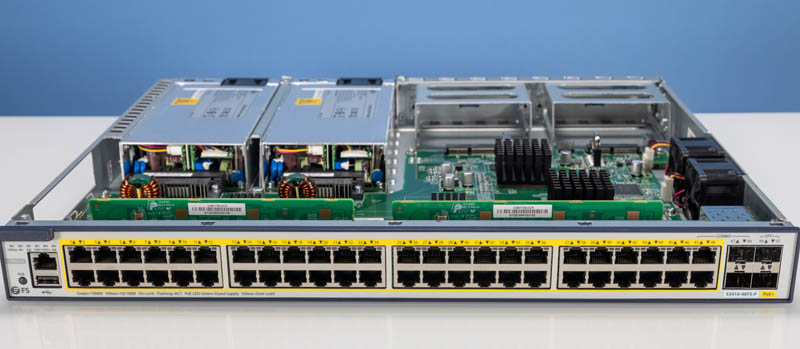
Here is another view with the S3410-48TS-P on its side.
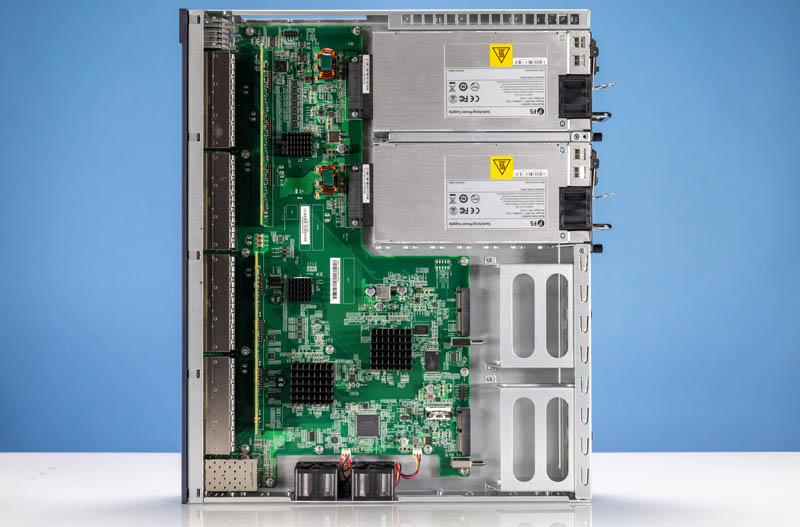
The main switch chip itself is a Broadcom BCM56150.
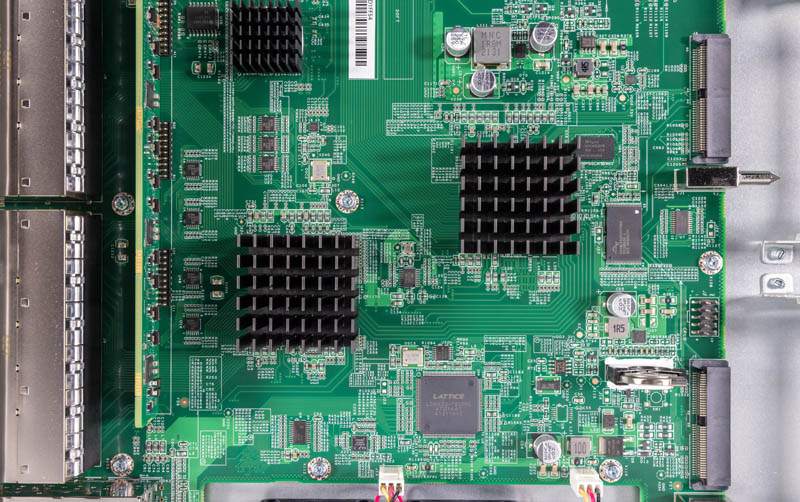
Here is the diagram for the Broadcom chip, do not get too excited as there is not a 40GbE nor a 2.5GbE port on this switch.
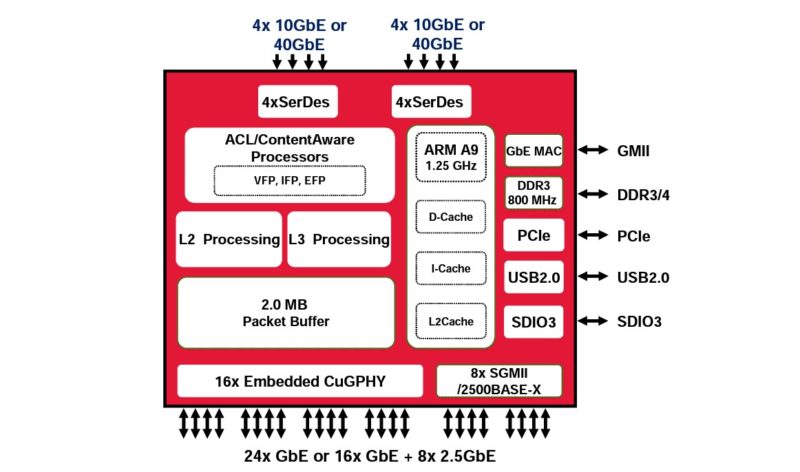
We are just going to show a few angles of the chips here. We wanted to take off the heatsinks, but they were glued and we were worried about breaking them off.
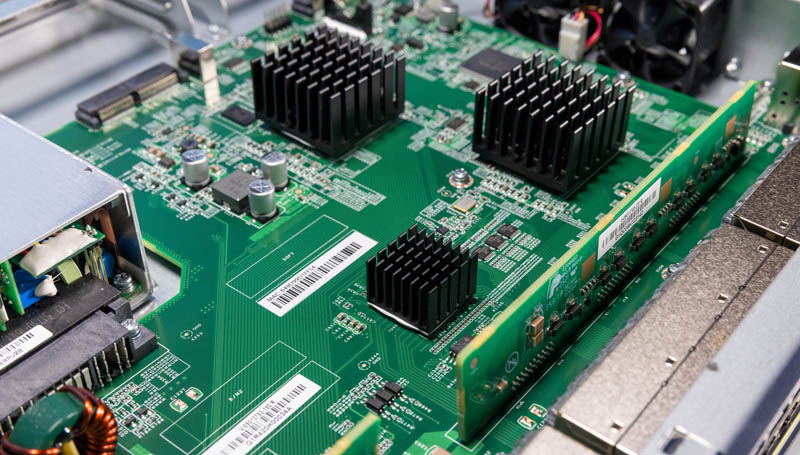
Here is another view:
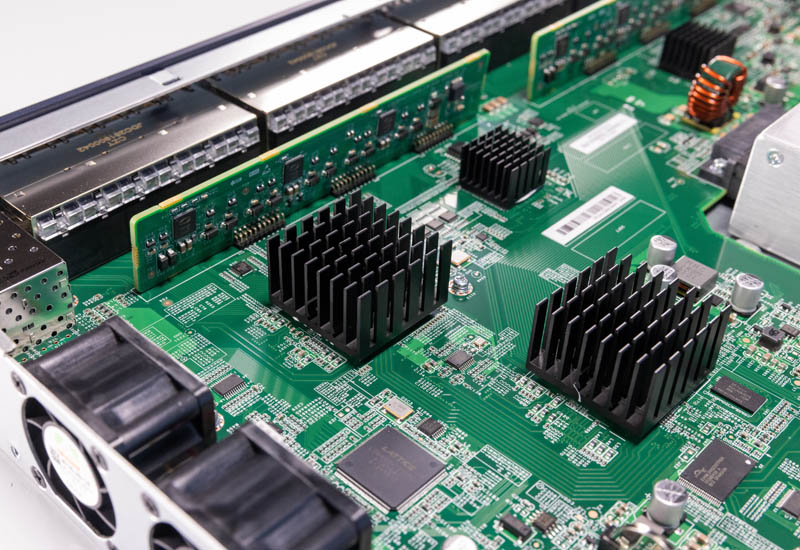
The two fans are near the biggest components on the board, but there is not special ducting or anything of that sort.
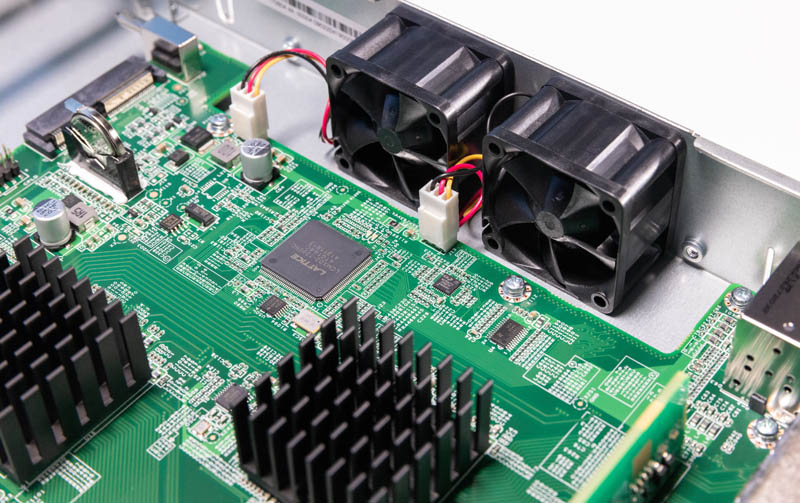
Here is a back view of the SFP+ and SFP combo cages:
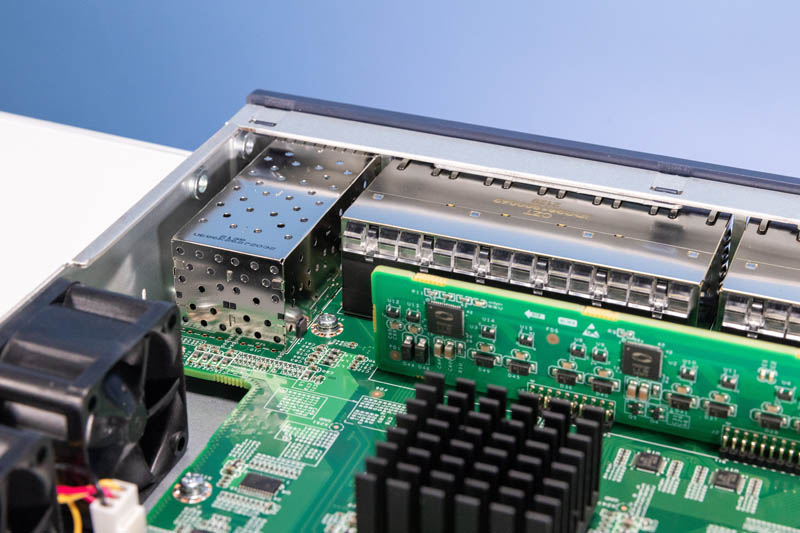
Here is where the power supplies connect to the switch board.
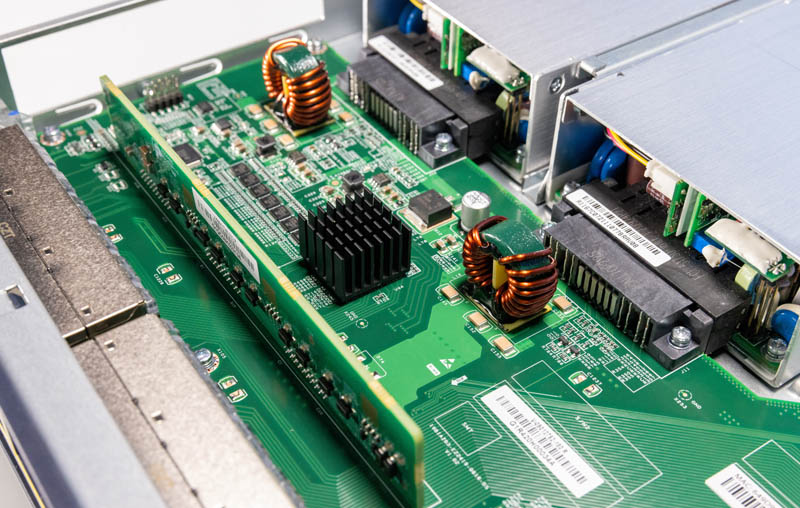
Here are the two expansion slots. It would be interesting if there were expansion cards available for these switches, especially with higher-speed ports.
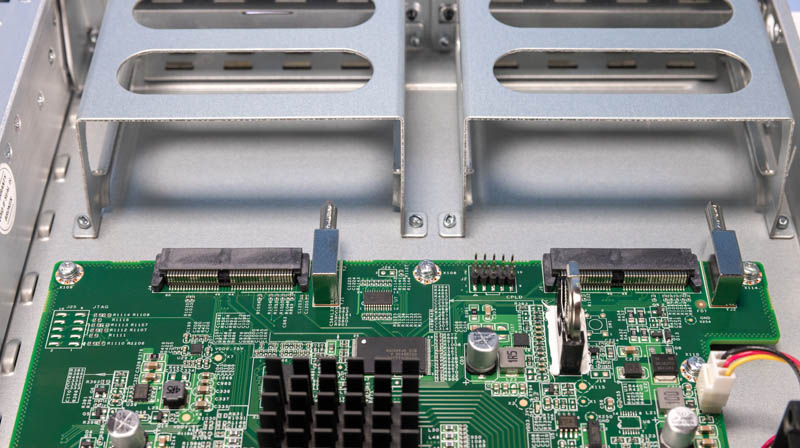
Next, let us get to the management.
FS S3410-48TS-P PoE+ Switch Management
While there is a CLI on the S3410-48TS-P, the perhaps more interesting one is the WebCLI. We expect many purchasers of a L2+ switch like this to be those that do not want to delve into a CLI. One big change that we have seen from some other FS models is that we were immediately prompted for a username change upon logging in.
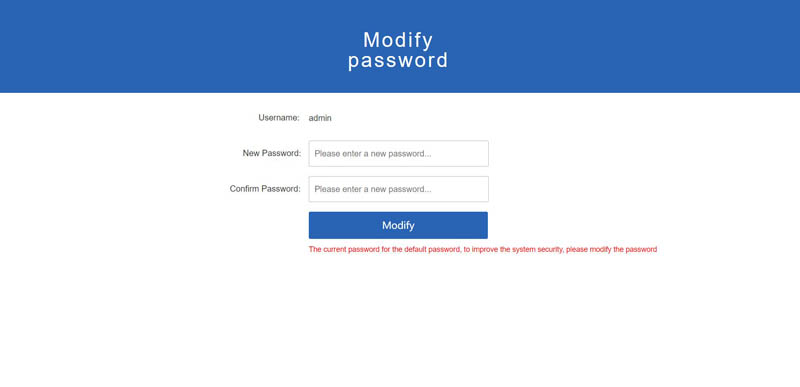
The CLI is FS branded and functional.
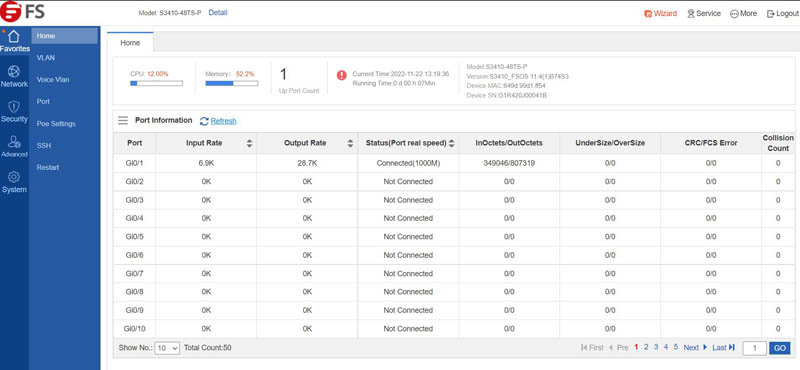
There was a wizard to help set up the management side of the switch. This would be easy to figure out for a novice. It is using the default DNS of 114.114.114.114, which is China’s version of Google’s 8.8.8.8 or CloudFlare’s 1.1.1.1. Our sense is that it would be wise to change this to your own DNS provider if you are not in China to cut down on DNS request latency and so forth. Also, there are probably areas where using a different default DNS would be appreciated.
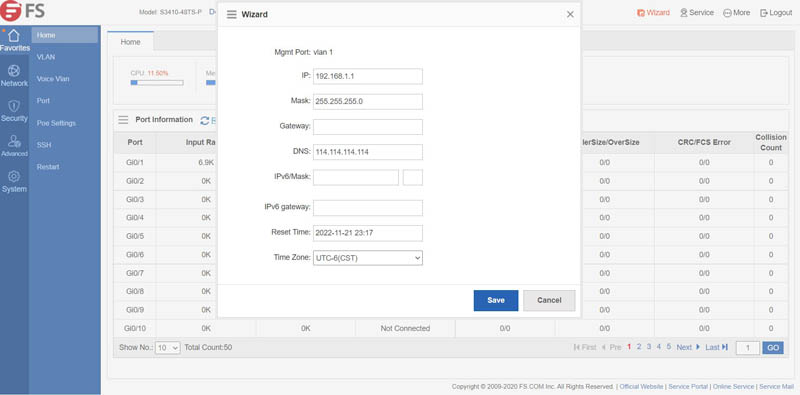
There are some basic capabilities to set VLAN and voice VLANs as well via the UI.
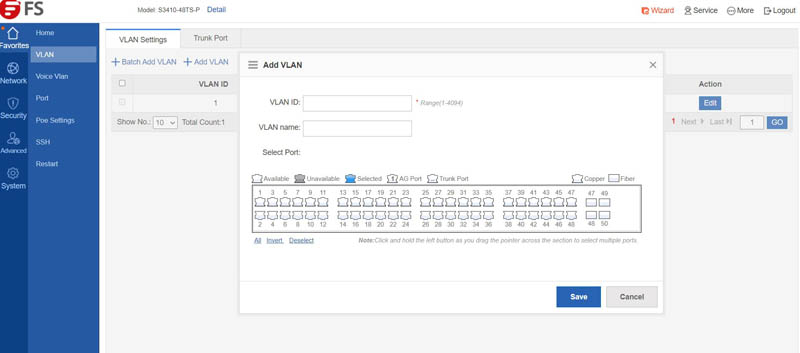
Since this is a PoE+ switch, one can see the PoE+ port status, as well as the power being used on each port, and set priorities and maximum power per port.
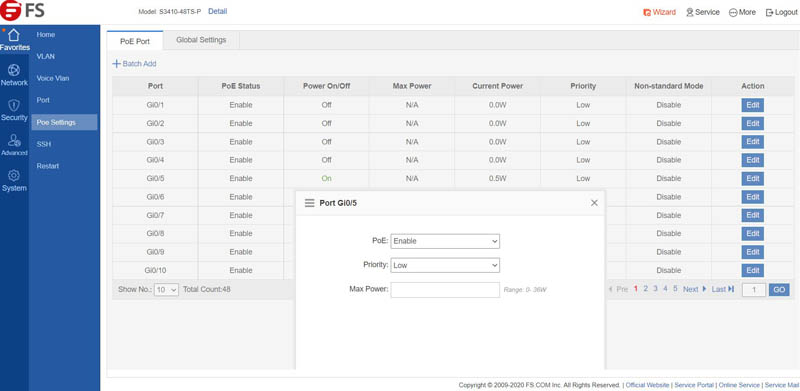
A function on many PoE switches that is very useful is the ability to easily power-toggle PoE and, thereby, power-cycle connected devices. This is for events such as if a camera or AP needs to be reset. The way this seems to be done on the FS switch is by going into the PoE port settings, then toggling enable to disable, and back on the screen above. This works, but it is far from the most elegant solution.
Next, let us look at the PoE+ port testing and power consumption.

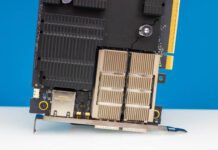
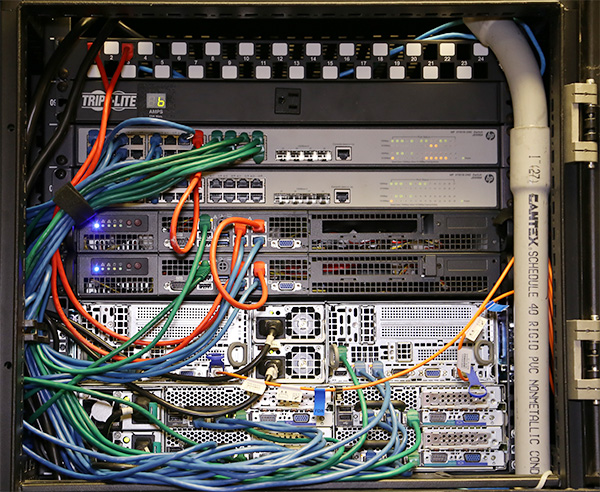
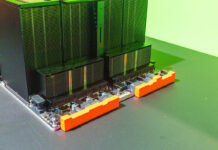
Aren’t those plain S-ATA power & data connectors in front of those expansion cages? Also, CLI being short for ‘command line interface’, wouldn’t it be more apt to just talk about a web UI for the web interface? I see nothing command line in those screenshots :-).
You may want to consider support and warranty when evaluating these FS switches. They only have a 30 day replacement warranty. After that you have to ship it back to their US facility and then they send it back to China for repair. The whole process takes several weeks and unless you have a cold spare handy and backup configs, you are kinda hosed. I’m not against FS switches, just want people to be aware that in pretty much any production environment they will probably need to buy spares, which then means they aren’t quite inexpensive as they first appear.
I’d have loved to see mention/comparison between this and mikrotik’s CRS354-48P-4S2QRM which trades the expansion and modular power supplies for a higher bandwith and lower price point(alongside routerOS if that’s something you’re familiar with)